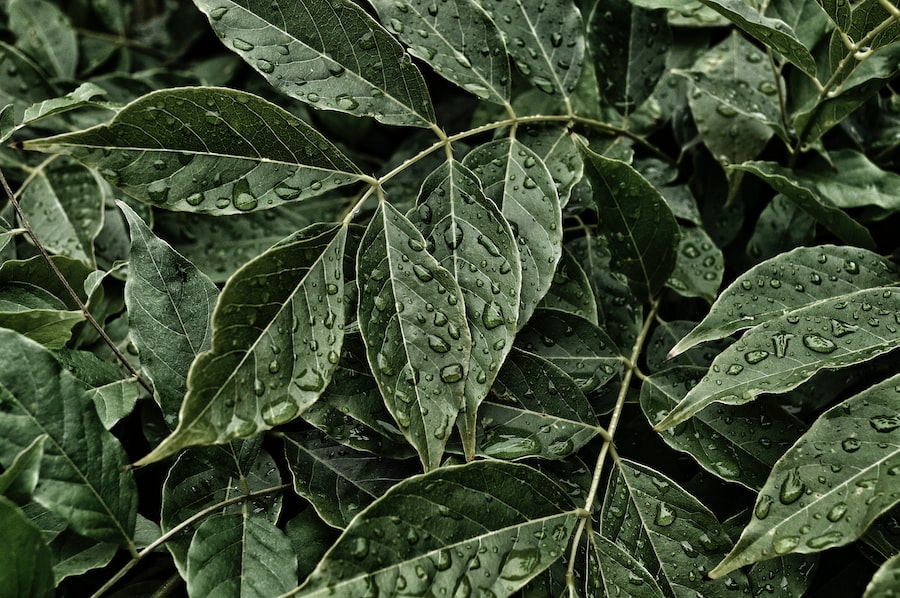Keeping Your Feline Friends Safe: Is the Peace Lily Plant Poisonous to Cats?

As cat owners, it is our responsibility to ensure the safety and well-being of our feline friends. Cats are curious creatures and can often find themselves in situations that may pose a threat to their health. One such danger is the presence of poisonous plants in our homes and gardens. Many common plants that we may not think twice about can actually be toxic to cats if ingested. In this article, we will explore the dangers of poisonous plants for cats, with a specific focus on the peace lily plant.
Key Takeaways
- Keeping your feline friends safe should be a top priority for all cat owners.
- Poisonous plants can pose a serious threat to cats, and it’s important to understand the dangers.
- The peace lily plant is one of the most toxic plants for cats, and it’s important to be able to identify it.
- Symptoms of peace lily poisoning in cats can include vomiting, diarrhea, and difficulty breathing.
- If your cat ingests peace lily, it’s important to take immediate steps to seek treatment and prevent further harm.
Understanding the Dangers of Poisonous Plants for Cats
There are numerous plants that are toxic to cats, and it is important for cat owners to be aware of these dangers. Some common plants that can be harmful to cats include lilies, tulips, daffodils, azaleas, and sago palms, among others. These plants contain toxins that can cause a range of symptoms in cats, from mild gastrointestinal upset to more severe reactions such as kidney failure or even death.
Cats are particularly susceptible to plant toxicity due to their curious nature and tendency to nibble on plants. When a cat ingests a toxic plant, the toxins can be absorbed into their bloodstream and affect various organs in their body. The severity of the symptoms will depend on the type of plant ingested and the amount consumed.
Identifying the Peace Lily Plant and Its Toxicity
The peace lily (Spathiphyllum) is a popular houseplant known for its beautiful white flowers and glossy green leaves. While it may be aesthetically pleasing, it is important for cat owners to be aware that peace lilies are toxic to cats if ingested. All parts of the plant contain calcium oxalate crystals, which can cause irritation and swelling in the mouth, throat, and digestive tract of cats.
Symptoms of Peace Lily Poisoning in Cats
| Symptoms of Peace Lily Poisoning in Cats |
|---|
| Vomiting |
| Diarrhea |
| Difficulty breathing |
| Excessive drooling |
| Loss of appetite |
| Lethargy |
| Swelling of the mouth, tongue, and lips |
| Renal failure (in severe cases) |
If your cat has ingested a peace lily, there are several symptoms to watch out for. The most common signs of peace lily poisoning in cats include drooling, pawing at the mouth, difficulty swallowing, vomiting, diarrhea, and decreased appetite. In more severe cases, cats may experience difficulty breathing, swelling of the tongue or throat, and even collapse.
It is important to note that the symptoms of peace lily poisoning can vary depending on the individual cat and the amount of plant material ingested. Some cats may only exhibit mild symptoms, while others may experience more severe reactions. If you suspect that your cat has ingested a peace lily and is showing any of these symptoms, it is crucial to seek immediate veterinary attention.
Immediate Steps to Take if Your Cat Ingests Peace Lily
If you discover that your cat has ingested a peace lily, it is important to take immediate action to prevent further harm. The first step is to remove any remaining plant material from your cat’s mouth and paws. Be sure to wear gloves to protect yourself from the plant’s toxins. You can use a damp cloth or paper towel to gently wipe away any residue.
Next, you should contact your veterinarian or an emergency veterinary clinic for guidance. They will be able to provide you with specific instructions based on your cat’s symptoms and the amount of plant material ingested. In some cases, inducing vomiting may be recommended, while in others, they may advise against it.
Treatment Options for Peace Lily Poisoning in Cats

The treatment for peace lily poisoning in cats will depend on the severity of their symptoms and the amount of plant material ingested. In mild cases, supportive care such as fluid therapy and anti-nausea medications may be sufficient. However, in more severe cases where there is swelling or difficulty breathing, more aggressive treatment may be necessary.
Your veterinarian may administer medications to reduce inflammation and swelling, as well as provide oxygen therapy if your cat is having difficulty breathing. They may also recommend hospitalization for close monitoring and supportive care. It is important to follow your veterinarian’s instructions and continue any prescribed medications or treatments until your cat has fully recovered.
Preventing Peace Lily Poisoning: Tips for Cat Owners
Prevention is key when it comes to keeping your cat safe from peace lily poisoning. Here are some tips to help you create a cat-friendly environment and minimize the risk of plant toxicity:
1. Keep plants out of reach: Place plants in areas that are inaccessible to your cat, such as high shelves or hanging baskets. Be mindful of any climbing abilities your cat may have and adjust accordingly.
2. Choose safe plants: Opt for cat-friendly plants that are non-toxic to cats. There are many beautiful options available, such as spider plants, Boston ferns, and African violets.
3. Use deterrents: If your cat has a tendency to chew on plants, you can use deterrents such as bitter sprays or aluminum foil around the base of the plant to discourage them.
4. Provide alternative options: Cats often chew on plants out of boredom or curiosity. Provide them with safe alternatives, such as cat grass or catnip, to satisfy their natural instincts.
Alternatives to Peace Lily for Cat-Friendly Home Décor
If you are looking for alternatives to peace lilies for your home décor, there are plenty of safe options available. Here are some cat-friendly plants that you can consider:
1. Spider plant (Chlorophytum comosum): Spider plants are non-toxic to cats and have long, arching leaves that can add a touch of greenery to any space.
2. Boston fern (Nephrolepis exaltata): Boston ferns are safe for cats and have delicate, feathery fronds that can create a lush and tropical atmosphere in your home.
3. African violet (Saintpaulia): African violets are small, compact plants that produce beautiful flowers in a variety of colors. They are safe for cats and can be a lovely addition to your home.
When choosing cat-friendly home décor, it is important to consider not only the safety of your cat but also the ease of care and maintenance. Opt for plants that are suitable for your living conditions and that you can easily care for.
Other Common Plants that are Toxic to Cats
While peace lilies are a common plant toxic to cats, there are many other plants that cat owners should be aware of. Some other common plants that are toxic to cats include lilies (all types), tulips, daffodils, azaleas, sago palms, and poinsettias, among others. It is important to research any new plants before bringing them into your home or garden to ensure they are safe for your feline friends.
To keep your cat safe from these plants, follow the same preventative measures mentioned earlier. Keep them out of reach, choose safe alternatives, and provide deterrents if necessary. It is also important to educate yourself on the specific symptoms and treatment options for each plant in case of accidental ingestion.
Prioritizing Your Cat’s Safety and Well-Being
In conclusion, it is crucial for cat owners to prioritize the safety and well-being of their feline friends. Poisonous plants pose a significant threat to cats, and it is important to be aware of the dangers they can present. The peace lily plant is just one example of a common plant that can be toxic to cats if ingested.
By understanding the dangers of poisonous plants, identifying the symptoms of peace lily poisoning, and taking immediate action if ingestion occurs, you can help ensure the health and safety of your cat. Additionally, by choosing cat-friendly home décor and providing safe alternatives, you can create a living environment that is both aesthetically pleasing and safe for your feline companion.
Remember, prevention is key when it comes to keeping your cat safe from poisonous plants. By taking the necessary precautions and being vigilant, you can minimize the risk of plant toxicity and provide a safe and loving environment for your beloved feline friend.
If you’re a cat owner and considering adding a peace lily plant to your home, it’s important to know whether it is safe for your feline friend. According to an article on Lawn World, some plants can be toxic to cats, and the peace lily is one of them. To learn more about the potential dangers of peace lilies for cats, check out this informative article on Lawn World’s website: Is Peace Lily Plant Poisonous to Cats?
FAQs
What is a peace lily plant?
A peace lily plant is a popular houseplant that is known for its attractive foliage and white flowers. It is also known as Spathiphyllum and is native to tropical regions of the Americas and southeastern Asia.
Is peace lily plant poisonous to cats?
Yes, peace lily plant is toxic to cats. It contains calcium oxalate crystals that can cause irritation and swelling of the mouth, tongue, and throat if ingested by cats. In severe cases, it can also cause difficulty breathing and swallowing.
What are the symptoms of peace lily plant poisoning in cats?
The symptoms of peace lily plant poisoning in cats include drooling, vomiting, difficulty swallowing, pawing at the mouth, and swelling of the mouth, tongue, and throat. In severe cases, it can also cause difficulty breathing and collapse.
What should I do if my cat ingests peace lily plant?
If your cat ingests peace lily plant, you should immediately contact your veterinarian or a pet poison control center. You should also try to remove any remaining plant material from your cat’s mouth and wash its paws and face to prevent further ingestion.
How can I prevent my cat from ingesting peace lily plant?
You can prevent your cat from ingesting peace lily plant by keeping it out of reach of your cat. You should also consider using alternative houseplants that are safe for cats, such as spider plants, Boston ferns, and African violets.



